- Home
- Lauren Gilley
Lone Star (Dartmoor Book 7)
Lone Star (Dartmoor Book 7) Read online
The Dartmoor Series
Fearless
Price of Angels
Half My Blood
The Skeleton King
Secondhand Smoke
Loverboy
American Hellhound
Shaman
The Lean Dogs Legacy Series
Snow In Texas
Tastes Like Candy
Prodigal Son
Lone Star
Dartmoor Book VII
by
Lauren Gilley
This is a work of fiction. Names, characters, places, and events are all the products of the author’s imagination, or are used fictitiously. Any resemblances to persons, living or dead, is coincidental, or meant to serve as entertainment, rather than fact.
Names and characters are property of the author and may not be duplicated.
LONE STAR
Copyright © 2020 by Lauren Gilley
Cover design copyright © 2020 by Lauren Gilley
HP Press®
Atlanta, GA
All rights reserved.
LONE
STAR
Amarillo
One
Nighttime in December, in the desert, was colder than a non-desert-dweller might expect. A fine, crystalline layer of frost settled on the hard-packed dirt, and the hardy, spiny vegetation that grew in tufts between boulders, and along the open, dry-cracked pans of flat ground that ran between the highways and the jagged, unclimbable hills. A cold that could send you into hypothermia if you weren’t properly equipped. A cold that could, in this case, preserve something.
The bodies had been dumped yesterday evening, just before dark, Candy judged. Late enough that, when the cold came on, quick and brutal, it had slowed the decomposition process. It had started up this morning, when the sun finally reached its zenith, when its brightness melted the last traces of frost and heated the arid earth to the sort of cozy temperature that made you want to dig your toes in, like you were at the beach.
Dump was an unfair word for it. They’d been positioned carefully. Staked: long railroad spikes driven in, the arms and legs star-fished out and secured with polymer rope tied tight. They’d been alive, still, when they were secured, and killed on-site: throats slit, ugly black gashes, serrated at the edges where the blood had clotted and dried. The blood had slipped down their necks, and pooled on the sand below, now an attraction for ants and scorpions. Buzzards had been here, too. The eyes were gone. A chunk from one cheek. Bits of finger pecked that Candy didn’t want to look at too closely.
There were three. Men in their twenties and or thirties; hearty, but showing signs of starvation, their clothes fitting as loosely as if they’d been staked out here in the sun for months, rather than a matter of hours.
Beside him, Blue let out a low, almost-impressed whistle.
Candy turned to the man who’d called him out here. Pacer Menendez stared off across the long, flat pan of this stretch of empty land, off toward the squat, abandoned little shack that housed the electrical boxes of the cell towers that threw long shadows against the far cliffs. He held his knuckles pressed tight to his mouth, edges of his lips white with stress and sickness, pupils shrunk down to pinpricks against the blazing sun. Candy had never seen him without a hat; when he took off his helmet, he always pulled a battered, curled-brim Houston Oilers hat out of his back pocket, and crammed it down on his head; it had left a permanent dent across his forehead over the years. He didn’t wear it, now, sweat beading on his brow and sliding down his temples unheeded.
It wasn’t hot. Candy wore his thickest Carhartt under his cut.
“Pace,” he prodded gently.
“I just don’t understand,” he said, voice low, and thready. “We don’t…we didn’t…who would do this to us?”
Candy didn’t know, but he intended to find out.
Two
“Ritualistic,” Agent Cantrell announced, grimly, and stood, shaking the creases from his trouser legs with one blue-gloved hand.
Candy had finally, after careful thought, and even more careful consideration, convinced Pacer to call the police. Two portable, open-sided tents had been set up, sunlight filtering through their blue nylon and making the bodies look especially dead. One had been erected over the corpses – the larger of the two – and the other had become a sort of command central. Candy was there, standing beside the folding camp chair Pacer had finally been steered down into, hand white-knuckled around a can of warming Coke, condensation dripping unheeded down onto one denim-covered knee.
He’d met Pacer for the first time when he himself was ten, when Pacer was a scrawny Lean Dogs prospect, his pimple-flecked face pale with stress as Jack Snow held out a hand for the cut the boy still gripped like a lifeline. “Hand it on over, son,” Jack had said, his rich voice low and soothing. “There’s no shame in finding out you aren’t a good fit for something. This isn’t meant to be your world, and nobody can find fault with that.”
He’d gotten his walking papers that day, but he’d left the club as a friend, and, a few years later, when he’d founded a non-outlaw riding club called the Road Runners, he’d done so with Jack’s – and the Lean Dogs’ – blessing. It had become a sort of haven for all the Harley riders who loved the open road, but didn’t love the idea of running guns and drugs to earn their bread and butter.
“No shame in it at all,” Jack had always said. “The world needs the good ones more than it needs us.”
A hell of a thing to tell one’s son, but it had stuck in Candy’s mind; he’d preserved the treaty with the Road Runners after Dad was gone, and Crockett stepped down. He hadn’t expected the call he’d gotten this morning; hadn’t expected the wavery panic in Pacer’s usually-mellow voice.
Definitely hadn’t expected “ritualistic” killings in the flat, arid stretch of land where Lean Dogs’ territory butted up to Road Runners’ turf, but here they were.
Texas State Troopers had shown up while Pacer sat in the shade of their three bikes parked together, staring sightlessly into the middle distance. A matched pair of boys in khaki, hiking gun belts up beneath their potbellies, one chewing gum, the other wallowing a toothpick around like a tongue-wielded weapon. They’d looked at Candy before they’d looked at the bodies, long stares over the rims of their cliché aviators, glances toward his patches, especially his President tag.
He’d given them his best shit-eating grin. “The poor, unfortunate deceased are over that way, officers.”
The toothpick had twirled his direction threateningly.
After a few minutes of moving around the bodies, crouching, examining, standing, fanning their red faces with their hats, the troopers had decided it was time to call in the big guns. The FBI – a single agent who looked young enough to be Candy’s kid – had pulled up an hour later, parking a dusty Explorer beneath the swooping black shadows of the vultures that kept circling, circling overhead, patient and tireless.
“Well,” Cantrell said now, stepping into the command tent, snapping off his gloves. “It looks like you boys have some cultists on your hands.”
Candy waited for the laugh he figured must be coming, but the agent just looked between the three of them. “Cultists,” he finally deadpanned.
“Yeah,” Cantrell said, reaching to dig around in the cooler for a drink. He paused to press the dripping can of Mountain Dew to his forehead a moment before popping the tab, not seeming bothered by the icy rivulets of water that ran down his face and dripped onto his sweat-darkened shirt front. “Goddamn, it’s hot out here.”
It was warm, Candy thought. He’d shrugged out of his jacket, but he wasn’t sweating like this guy.
“Cultists,” Cantrell repeated, when he’d taken a few long
swallows. “Saw a case in Nevada like this just a few weeks ago. Vics staked out in the open, throats cut. The whole deal.”
“You found the murderers, then?” Candy asked.
Cantrell winced. “Not yet, no. But we’re narrowing it down. The profilers say it’s classic cult behavior.”
Candy stared at him.
“You’re gonna cut a guy’s throat, you’re just gonna cut it, right? Dump the bodies in a hog pen or something. But you lay them out while they’re still alive, and then kill them? There’s a reason for that. And in Nevada, they were sedated first. Lab found Special K in their tox screens. My guess is this’ll turn up the same.”
Candy glanced down at Pacer, but the older man was still staring into the middle distance, lips faintly trembling on each breath. If he was listening to their conversation, he gave no indication.
Cultists my ass, Candy thought. He reached down to grip Pacer’s shoulder, and squeezed.
He hadn’t expected a response, but the lack of one was disturbing all the same.
Three
“Can you email me the spreadsheet? Thanks, Jeannie.” Michelle disconnected the call and set her phone aside. She meant to turn back to her laptop, open on her lap, its battery growing warm enough across her thighs as to be uncomfortable, but the TV – nearly muted – caught her attention. The nightly news was on, something mindless to throw flashing colors across the floor and keep her a cold kind of company. She was used to working late – often onsite at TLC, or here in the cozy living room of the sanctuary – but, usually, Candy was sitting beside her, providing unheeded commentary on whatever old Western he was watching, or bringing her a glass of wine, or urging her to shut the computer down before she went blind and come to bed already. The last part he usually sweetened with a skim of fingertips across her cheek, and down her throat; a lingering, promising kiss beneath her ear; a tickle at her ribs until she couldn’t hold in the laughter, and finally closed the laptop and turned to him.
“You work too hard,” he always told her, and maybe she did, but he did, too. It wouldn’t be fair to sit on her laurels and let the still-tentative business growth they’d established here in Amarillo go belly-up while she lazed about in bed with her husband – no matter how convincing he set out to be.
On the screen, a stern-faced reporter squinted against the sun – a story recorded earlier in the day. Behind him, yellow crime scene tape, and the crenelated edges of two pop-up nylon tents, fluttered hard in the breeze. Gloved men and women in FBI windbreakers moved around behind him, toting crates and cases; there were drapes on the ground, white-tinted-blue beneath the far tent.
She snagged the remote and thumbed the volume.
“…triple homicide being investigated by the FBI, now. We’re told there might be a possible connection with a similar case in Nevada–”
“Don’t you know watching the news before bed is the best way to have nightmares?” Candy’s voice asked behind her.
Michelle jumped – remembered her laptop, and set it on the coffee table – then twisted around so she was kneeling on the couch.
Candy stood just inside the door, leaning back against it, actually, shoulders pressed against the wood, thumbs hooked in his belt in that unconscious way that made him look every inch a cowboy. She thought it was adorable, but hadn’t told him so, afraid he’d get self-conscious and quit doing it. She’d always wondered if his dad had done it, too; if it was a learned behavior. She loved the way it emphasized the leanness of his waist, and the fit of his Wranglers, and the width and heft of his arms and shoulders.
Clearly, she was overtired if her brain went straight in the gutter.
She blinked, and focused on his face, thinking at first that her vision was just blurry, but then realizing that he did indeed look more troubled than he’d sounded on the phone earlier.
He’d tried to act like his usual carefree self. It’s all fine, baby, gonna make sure Pace is okay and head home.
That had been four hours ago.
“I just saw on the telly,” she said. “Love, I’m sorry.”
He shrugged, jacket rustling against the wood of the door. “I didn’t know the guys.”
“But you know Pacer.”
He shrugged again, gaze flicking up and over her shoulder, toward the TV that she now wished she’d switched off before turning around. His throat worked as he swallowed, blue light catching the faint, golden grain of his five o’clock shadow.
Michelle opened her arms and wiggled her fingers invitingly. “Come here, then. A hug will help.” It was what she said to TJ when he was in the worst depths of toddler despair, when he’d scraped a knee or broken a toy. He always came lurching into her offered embrace, and pressed his hot, wet face into her shoulder with a quiet “Mama.” It always left her pulse skipping; always. She was Mama, and that twisted like the sweetest knife in the tender parts of her heart. She’d been too young when her own mother died to remember calling her Mum, but that was how her dad, and she, and Tommy, had referred to her when they paged through old photo albums. She’d assumed, when she was younger, that if she ever had a child, it would be with a British man, and that she’d be Mum and Mummy.
She hadn’t counted on Mama, but she loved it.
Candy looked at her, brows lowering, mouth tucking down in the corners, petulant and suddenly young-looking. TJ was the spitting image of him. “I’m not a baby.”
“Come on.” She gave her fingers another waggle. “You can be my baby.”
He resisted another moment. Then he blew out a breath, and took the few slumping steps into her arms. His own, thick and strong as steel girders, closed around her tight, tight, and he dropped his face into her hair.
She hadn’t thought she needed this, too, until they were pressed front-to-front, his jacket carrying the chill of the desert night, the skin of his throat warm against her cheek when she snuggled in close and reached up under his Carhartt to take double fistfuls of flannel.
He let out a deep sigh, lungs working like bellows, ribs giving to the press of her own. “Mama,” he sighed, breath tickling the top of her ear.
“I’m sorry,” she said again. “Was it terrible?”
“Pretty much.” He drew back far enough to tip her chin up with a knuckle and leaned in for a kiss. His lips were chilled, but his tongue was warm when it flicked out between her own lips.
She shivered.
“Coconut?” he asked with a grin when he pulled back again, licking a bit of her chap-stick off his lower lip. He touched her mouth with the pad of his thumb, right on the cupid’s bow.
She didn’t feel so tired anymore. “The raspberry was making me queasy.” She wrinkled her nose. “Like everything else.”
He chuckled, and stepped back far enough to go hang up his jacket and toe his boots off at the rack. Then he climbed over the back of the couch with more grace than any man that big had a right to, and settled in next to her, already reaching for her when she leaned sideways and snuggled up to his side, half in his lap. He smelled like Texas: like sun, and dust, and pavement.
On the TV, the ticker was running along the bottom of recycled footage from the scene; Michelle caught the words cult connection and turned to gauge Candy’s expression. “Cult?”
“Agent Howdy-Doody FBI thinks so,” he said, shaking his head with obvious disgust. “It’s not.”
She ran her nails lightly down the center of his chest, clicking over the buttons. “Now. Love. Not to second guess your aged wisdom.”
He snorted.
“But cults do exist. And they do sometimes do” – she motioned toward the screen – “the unspeakable.”
“Yeah, well…it’s not that. I’ve got a gut feeling.”
Generally, his gut feelings were correct. But…
“What about the other cases? The ones in Nevada?”
“What about ‘em?” He shrugged, getting agitated. “I’ve been in this game a long time – apparently a damn long time, according to my old lady.”
“And I’ve not seen cult one. When people die horribly, in my experience, it’s about revenge, or it’s about turf, or it’s about fear. And sometimes all three.”
She leaned her head against his chest, and patted his stomach – still firm and taut, still capable of making her own stomach do somersaults. “I know,” she said, and she did. Things in London had been different for the Dogs than they were here – but not that different. “It would just be nice, is all, for it not to be the usual bullshit.”
“Hear hear,” he sighed. And sighed again. “Shit.”
“You’re going to try to figure out who’s behind it, aren’t you?”
“I have to,” he said, a little helpless. “I mean – it’s Pace. He’s club family.”
“I know, darling. I’m with you, one hundred-percent.”
“Oh, no, no.” She felt him twist so he could look down at her more fully, and tipped her head back to meet his gaze. His expression had gone serious – so grave it would have been comical in another situation, his brows up near his hairline. “No. I don’t want you worrying about this at all. You don’t need it on your plate, not on top of everything else.” His brows lowered again, a furrow forming between them. He’d been trying to encourage her to delegate more at the bar and take some off time. So far, she’d taken a grand total of one personal day, and she’d been so bored she’d spent the day crunching numbers on her laptop, double-checking all her spreadsheets…and then triple-checking to be sure.
“If it’s worrying you, it’s worrying me,” she said. “We’re a team.”
“Yeah, we are, but see, chivalry demands that I handle this one on my own.”
“Chivalry? Or you being a stubborn control freak?”
“I like chivalry. Also.” He reached out, deftly slipped a hand beneath the baggy old sweater she wore, and palmed the slight roundness of her belly. His voice lowered, that deep, Texas twang coming out in a register that was nearly a purr, that managed to be both serious, soothing, and wildly arousing all at once. “Whether it’s devil-worshippers, or a bitch-ass new club, or a run of the mill psycho killer, I don’t want any of it anywhere near you and the babies.” He caught and held her gaze, his eyes electric blue in the TV glow, deadly earnest, the handsome, square lines of his face set at their most determined angles.

 Mystic Wonderful : A Hell Theory Novella
Mystic Wonderful : A Hell Theory Novella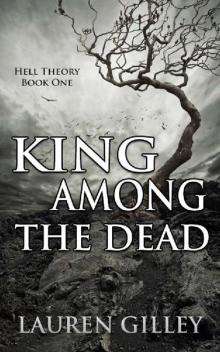 King Among the Dead (Hell Theory Book 1)
King Among the Dead (Hell Theory Book 1)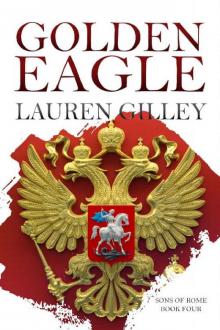 Golden Eagle (Sons of Rome Book 4)
Golden Eagle (Sons of Rome Book 4) Night In A Waste Land (Hell Theory Book 2)
Night In A Waste Land (Hell Theory Book 2)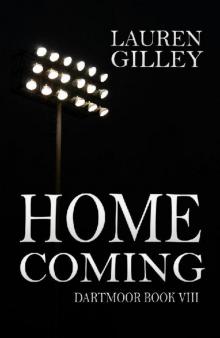 Homecoming (Dartmoor Book 8)
Homecoming (Dartmoor Book 8)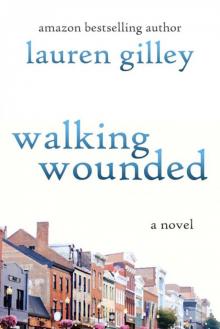 Walking Wounded
Walking Wounded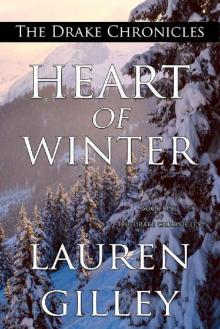 Heart of Winter (The Drake Chronicles Book 1)
Heart of Winter (The Drake Chronicles Book 1)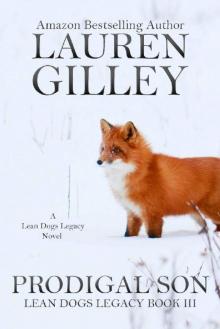 Prodigal Son (Lean Dogs Legacy Book 3)
Prodigal Son (Lean Dogs Legacy Book 3)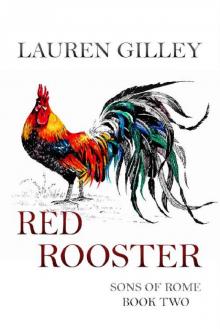 Red Rooster (Sons of Rome Book 2)
Red Rooster (Sons of Rome Book 2)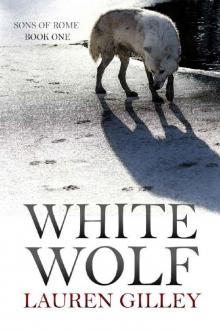 White Wolf
White Wolf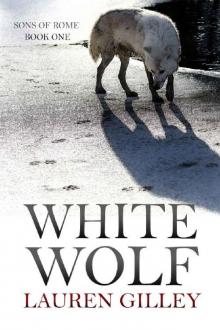 White Wolf (Sons of Rome Book 1)
White Wolf (Sons of Rome Book 1)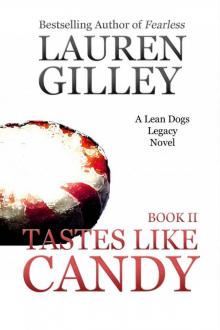 Tastes Like Candy (Lean Dogs Legacy Book 2)
Tastes Like Candy (Lean Dogs Legacy Book 2)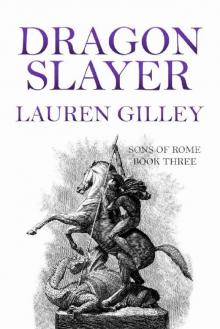 Dragon Slayer (Sons of Rome Book 3)
Dragon Slayer (Sons of Rome Book 3) American Hellhound
American Hellhound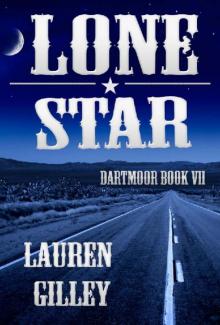 Lone Star (Dartmoor Book 7)
Lone Star (Dartmoor Book 7)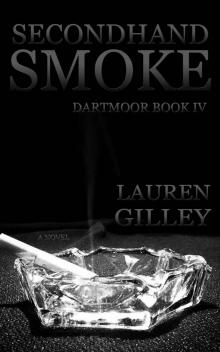 Secondhand Smoke (Dartmoor Book 4)
Secondhand Smoke (Dartmoor Book 4)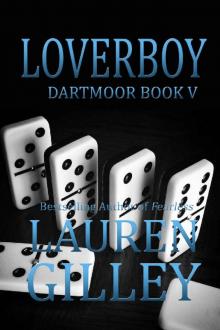 Loverboy (Dartmoor Book 5)
Loverboy (Dartmoor Book 5) The Stalker
The Stalker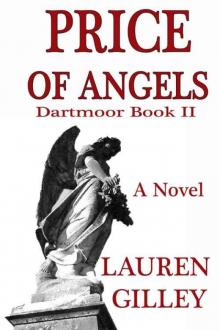 Price of Angels (Dartmoor Book 2)
Price of Angels (Dartmoor Book 2)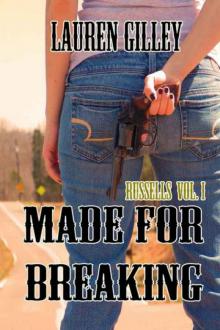 Made for Breaking
Made for Breaking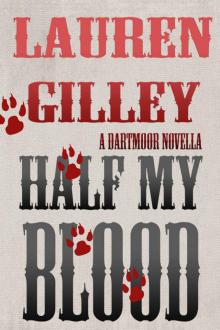 Half My Blood
Half My Blood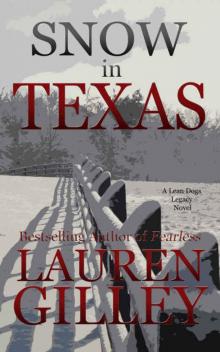 Snow in Texas (Lean Dogs Legacy #1)
Snow in Texas (Lean Dogs Legacy #1)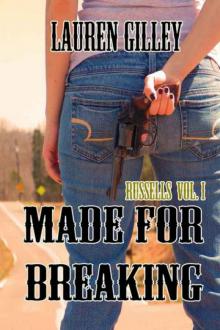 Made for Breaking (The Russells Book 1)
Made for Breaking (The Russells Book 1) Fearless
Fearless